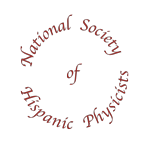
UMBC/CRESST II
HEASARC Staff Scientist Position
Applications are now being accepted for a Staff Scientist with significant experience and interest in the technical aspects of astrophysics research, to work in the High Energy Astrophysics Science Archive Research Center (HEASARC) at NASA Goddard Space Flight Center (GSFC) in Greenbelt, MD. The position consists of a research scientist appointment at the University of Maryland, Baltimore County (UMBC) Center for Space Sciences and Technology (CSST), funded by NASA through the Center for Research and Exploration in Space Sciences & Technology II (CRESST II).
The HEASARC provides support for the high energy astrophysics community through data curation, archiving and access, software development, documentation and tutorials, science platforms, and extensive interoperability with other archives.
The successful candidate for this position will have a strong astronomy research track record in high-energy astrophysics including experience with Jupyter notebook tutorials and data analysis in Python. A primary function will be to develop science use cases into tutorial notebooks that demonstrate cloud-based analysis of high-energy astrophysics data. The team is specifically looking for a scientist to work on the HEASARC contribution to the Fornax Initiative, the NASA Astrophysics effort to create cloud-based data analysis platform and associated tools. Depending on their skills and interest, the candidate may:
- Work with containerization of computing through, e.g. Docker;
- Develop systematic testing of a science platform based on the Jupyter stack;
- Provide user support through documentation, tutorials, and helpdesk responses;
- Contribute to open development software projects in Python, such as the Astropy-afilliated Astroquery and PyVO packages;
- Ensure interoperability between HEASARC and other archives using standard APIs and services; and/or
- Improve HEASARC metadata to enable easier and more efficient data discovery.
The successful applicant will be capable of working independently; as a member of several overlapping groups, both within NASA and at other institutes and archives; and with teams that consist of scientists, software developers, database managers, and system administrators. This is a full-time position, where approximately 75% of the successful candidate’s time will be devoted to the HEASARC programmatic responsibilities described above. The remainder is available for self-driven research projects, ideally in high energy astrophysics or related fields, with the expectation they will publish papers and present research at appropriate conferences.
Candidates for this position should have a Ph.D. in physics, astronomy, astrophysics, or a related field; several years of experience with astrophysical data and demonstrated software knowledge is preferred. The position will be a multi-year position with a nominal starting date in early 2025, but some flexibility is possible. We expect the selected candidate to work locally, with a regular schedule on-site at GSFC. Salary and benefits are competitive, with a range of $95,000 – $127,000, commensurate with experience and qualifications.
Candidates should send a complete application – which includes a cover letter, Curriculum Vitae, a 2–3-page statement of technical and research interests, and contact information for three references – through the CRESST II Breezy application platform by Sunday, December 15th, for full consideration. The position will remain available until filled.
For more information about the duties or HEASARC, contact Dr. Tess Jaffe (tess.jaffe@nasa.gov). For information on CRESST II or UMBC, Dr. Don Engel (donengel@umbc.edu). UMBC is committed to inclusive excellence and innovation and strongly encourages applications from women, minorities, veterans, and individuals with disabilities. UMBC is an equal opportunity employer and welcomes all to apply. EOE/M/F/D/V.
